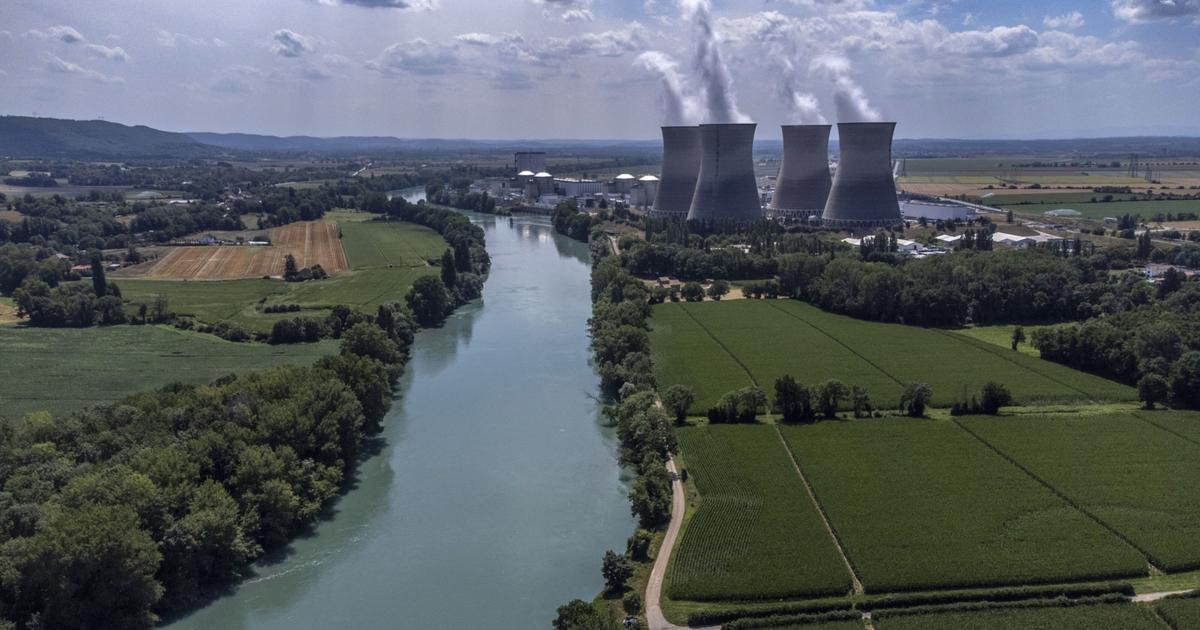The fight against the coronavirus pandemic could drop emissions of carbon dioxide (CO2), one of the main greenhouse gases, by up to 7% in 2020, but this spectacular drop will have little influence on global warming. in the longer term, warn researchers.
Read also: Climate: in terms of greenhouse effect, the worst-case scenario is unlikely
In early April, at the height of the confinements imposed to curb Covid-19, there was a 17% reduction in global CO2 pollution, according to the first assessment of the type, published Tuesday in the journal Nature Climate Change. China, the United States, the European Union and India contributed two-thirds of this fall in the first four months of 2020, or more than one billion tonnes of CO2. In 2019, industrial and energy sector emissions reached 37 billion tonnes, a record.
"The confinement of the population has brought about profound changes in energy use and CO2 emissions," said Corinne Le Quéré, lead author of the study and professor at the British University of East Anglia. "But these falls will probably be temporary, because they do not reflect structural changes in the economic, transport or energy systems", adds the one who also chairs the French High Council for Climate.
Read also: Coronavirus epidemic reduces pollution of the planet
If the world economy returned to its pre-pandemic conditions by mid-June - a more than improbable scenario - CO2 emissions would drop by 4% over the year 2020, according to calculations by Ms. Le Quéré and her team researchers. If restrictions continued throughout the year, the decline in 2020 would reach around 7%. "It would hardly be a comma in the continuous curve of the accumulation of CO2 in the atmosphere," underlines Richard Betts, director of studies on climate impacts at the British national meteorological office.
“We have to stop putting it there, not just put it slower. It is like reducing the flow of the tap on a bathtub. The water always rises, but just slower, ”continues this expert. Because during the pandemic, the climate crisis continues, even if the Covid seems to have relegated its emergency to the background.
Read also: Coronavirus: greenhouse gas emissions fell 30% with containment
To reach the ideal objective of the Paris agreement to limit global warming to + 1.5 ° C compared to the pre-industrial era, CO2 emissions should be reduced by 7.6% per year, each year from this year until 2030. While for the moment they are constantly increasing. The world has already gained around 1 ° C, resulting in more climate disasters. And each additional degree will exponentially increase the extent of the disturbances. However at the current rate, the temperature could rise by 4 to 5 ° C by the end of the century. And even if states respect their current commitments, the rise in mercury could exceed 3 ° C.
"The pandemic has shown that major structural changes are needed in the energy and transportation sectors," said Mark Maslin, professor of climatology at University College London. Some experts hope that this will be an opportunity to speed up the transition.
Read also: Oil: barrels at risk
"Fossil fuels seem to be hit harder than renewables," said Glen Peters, director of research at the International Center for Climate Research in Oslo, while oil, for example, reached a low during the crisis. "If this continues, we could come out of the Covid with lower emissions, renewable energies having been able to occupy more space, faced with some of the most polluting fossils such as coal".
But the stimulus packages of hundreds of billions around the world do not send only positive signals on the construction of a future "green" economy. "There is a high risk that a short-term vision will lead governments to lose sight of a broader perspective and put money into very polluting sectors, which have no place in a zero-carbon society Insists Joeri Rogelj of Imperial College London. The study published Tuesday in any case offers a vision by sector of reductions in emissions.
Read also: Coronavirus: historic fall in CO2 emissions in energy
On April 7, the day when CO2 pollution fell the most worldwide, emissions from land transport accounted for more than 40% of the fall, industry 25%, electricity production 19% and air transport 10%. While this type of calculation generally takes much longer, the new methods used by researchers could allow faster vision and thus accelerate decision-making. "If you can see the effects of a policy in a matter of months rather than waiting for years, you can refine the policies more quickly," said Glen Peters.













